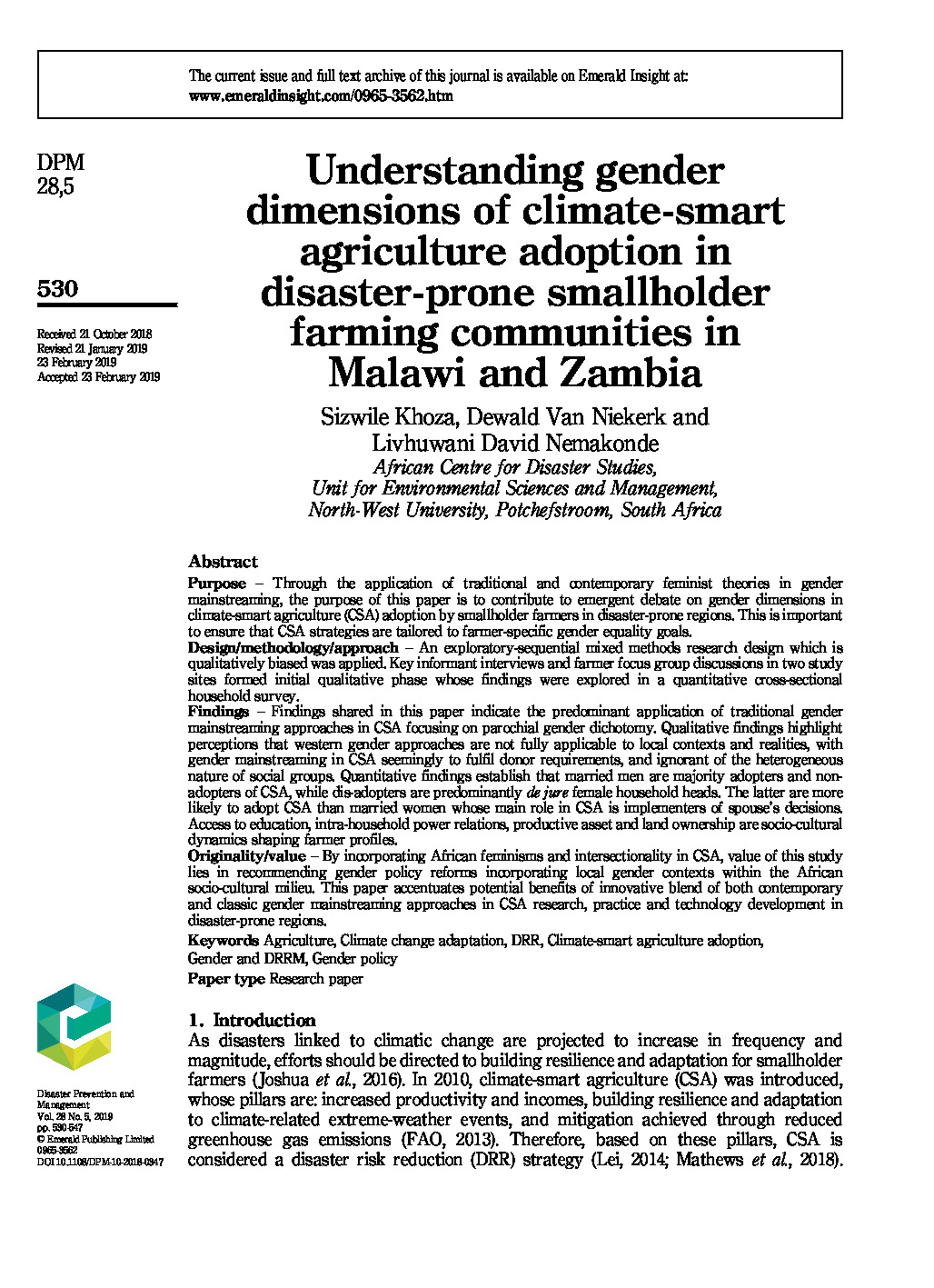Understanding gender dimensions of climate-smart agriculture adoption in disaster-prone smallholder farming communities in Malawi and Zambia
Abstract
Purpose – Through the application of traditional and contemporary feminist theories in gender mainstreaming, the purpose of this paper is to contribute to emergent debate on gender dimensions in climate-smart agriculture (CSA) adoption by smallholder farmers in disaster-prone regions. This is important to ensure that CSA strategies are tailored to farmer-specific gender equality goals. Design/methodology/approach – An exploratory-sequential mixed methods research design which is qualitatively biased was applied. Key informant interviews and farmer focus group discussions in two study sites formed initial qualitative phase whose findings were explored in a quantitative cross-sectional household survey. Findings – Findings shared in this paper indicate the predominant application of traditional gender mainstreaming approaches in CSA focusing on parochial gender dichotomy. Qualitative findings highlight perceptions that western gender approaches are not fully applicable to local contexts and realities, with gender mainstreaming in CSA seemingly to fulfil donor requirements, and ignorant of the heterogeneous nature of social groups. Quantitative findings establish that married men are majority adopters and nonadopters of CSA, while dis-adopters are predominantly de jure female household heads. The latter are more likely to adopt CSA than married women whose main role in CSA is implementers of spouse’s decisions. Access to education, intra-household power relations, productive asset and land ownership are socio-cultural dynamics shaping farmer profiles. Originality/value – By incorporating African feminisms and intersectionality in CSA, value of this study lies in recommending gender policy reforms incorporating local gender contexts within the African socio-cultural milieu. This paper accentuates potential benefits of innovative blend of both contemporary and classic gender mainst

